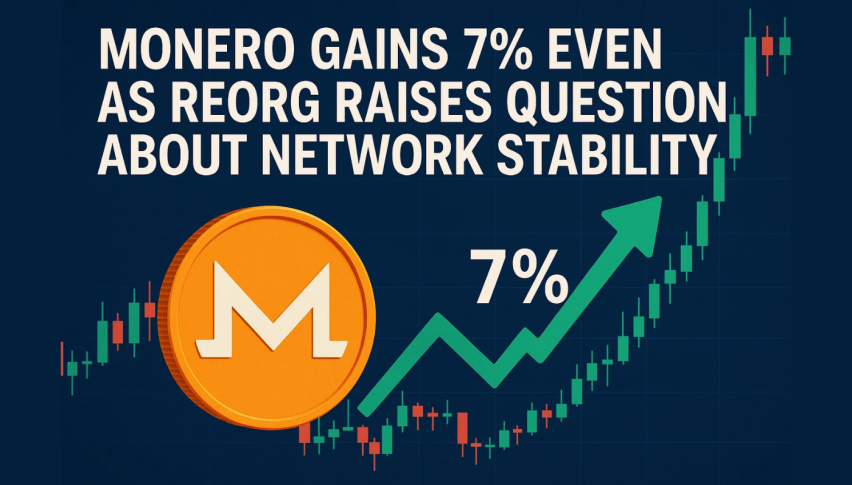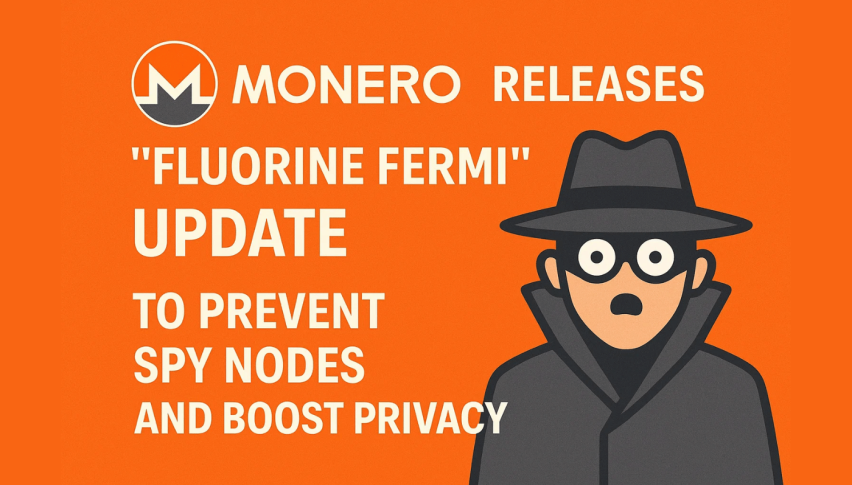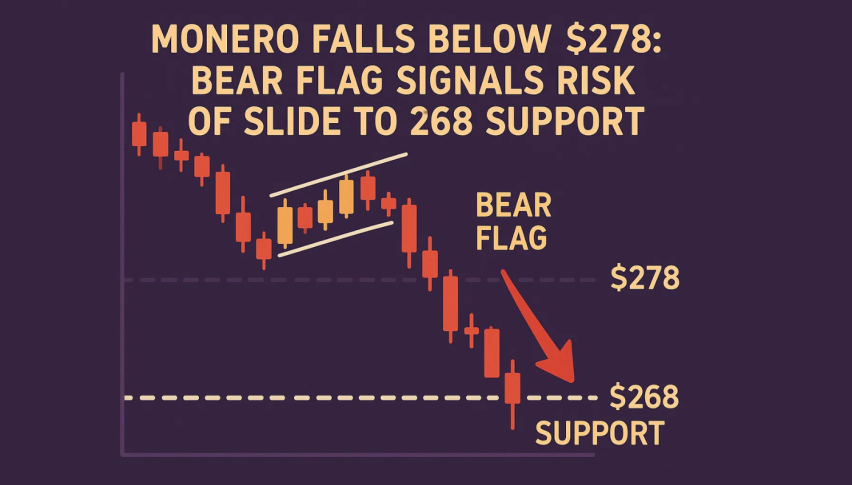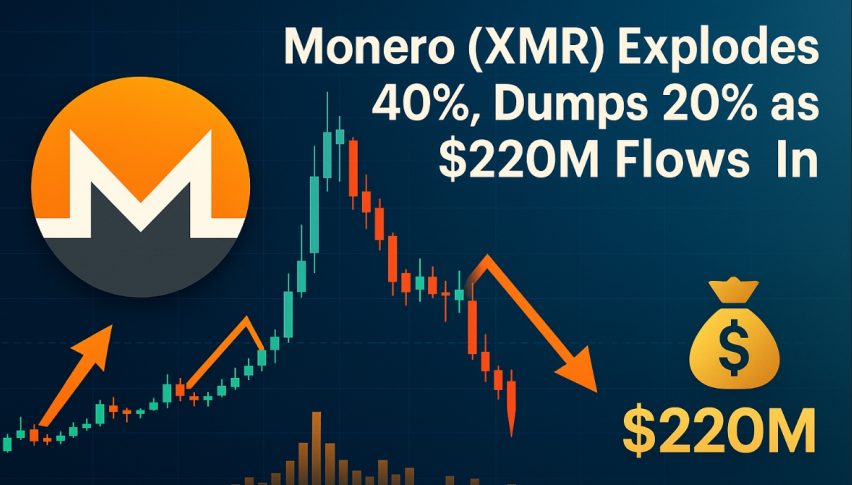Monero Gains 7% Even as Reorg Raises Questions About Network Stability
Monero's privacy token, XMR, increased by more than 7% despite its blockchain experiencing an 18-block reorganization...

Quick overview
- Monero's XMR token rose over 7% despite an 18-block reorganization that reversed around 117 transactions, raising concerns about the network's sustainability.
- The reorganization, which lasted approximately 43 minutes, was linked to a security vulnerability exploited by the Qubic company, which controls a significant portion of Monero's hashrate.
- Experts warn that the risk of double-spending has increased, suggesting that even transactions with ten confirmations may no longer be secure.
- The Monero community is exploring new consensus methods to enhance network security, but no solutions have been successfully implemented yet.
Monero’s privacy token, XMR, increased by more than 7% despite its blockchain experiencing an 18-block reorganization that reversed approximately 117 transactions and raised community fears about the Monero ecosystem’s sustainability.
XMR is up 14% this week and 26% over the last 30 days. Over the last day, about $176,270 in liquidations were recorded, with traders betting against XMR accounting for more over $160,000 of the total.
‼️Despite the record reorg Monero climbs past $300
Get some, without KYC, on https://t.co/JQY2pcZrye https://t.co/phOthuAa6U pic.twitter.com/QKUeVxc4jR
— OrangeFren.com (@OrangeFren) September 14, 2025
The Monero blockchain has been under considerable attention following an unexpected 18-block reorganization. The rollback happened at block heights ranging from 3,499,659 to 3,499,676, erasing around 118 previously confirmed transactions and effectively invalidating about 36 minutes of chain activity.
The security vulnerability was committed by the company behind Qubic, a layer-1 AI-focused blockchain and mining pool that accumulated 51% Monero hashrate and reorganized six blocks last month.
According to entities that run Monero nodes and provide their command-line consoles on X, the reorganization began at block 3499659 on Sunday at 5:12 a.m. UTC and ended approximately 43 minutes later at block 3499676.
Nothing to see here. Qubic just pulled a casual 18 blocks reorg on Monero 🤷 pic.twitter.com/fwSFY3olNu
— zuqka ױ (@AvdiuSazan) September 14, 2025
Monero’s most recent security flaw has been confirmed by cryptocurrency protocol expert Rucknium on GitHub.
CoinGecko statistics shows that the Monero XMR token rose 7.4% from $287.54 to $308.55 after a rather flat trading period during the reorg. XMR rose despite the overall market decreasing by almost 1% on Sunday.
Experts Warn of Rising Double-Spend Risks Amid Monero Block Reorganizations
Security experts warned that if the Monero community does not view block reorganizations as a major concern, the risk of double-spending would endure. They emphasized that the opportunity to exploit reorgs exists even without direct control over 51% of the network’s hashing power.
The rollback introduces double-spending, in which previously confirmed transactions are invalidated and the same coins are spent again. Historically, Monero transactions were considered finished after ten confirmations. However, following this reorganization, analysts suggested that this practice may no longer provide sufficient protection. The risk now exists that even transactions with 10 confirmations could later be invalidated by a deeper chain.
Besides, the repeated attacks shows how proof-of-work blockchains can be altered with when they are not sufficiently decentralized, limiting their utility as a monetary network.
🚨The attack against Monero is back! Two reorgs 9 blocks deep we're just observed‼️
If you're accepting Monero make sure to wait for way more confs pic.twitter.com/3IcQPLl3go
— OrangeFren.com (@OrangeFren) August 25, 2025
Monero Community Explored New Consensus Methods to Enhance Network Security
Previously, the Monero community considered overhauling its proof-of-work consensus method to make it more resistant to 51% attacks.
Proposals included localizing mining gear and using a merge mining algorithm. Additonally, allowing XMR mining alongside Bitcoin and other cryptocurrencies, and implementing Dash’s ChainLocks solution were also proposed.
To yet, no solution has been successfully adopted, and Qubic retains major control over the privacy-focused network.
Despite the network vulnerabilities, XMR has been relatively stable since allegations of Qubic’s takeover surfaced on July 28, dropping only 5.85%.
- Check out our free forex signals
- Follow the top economic events on FX Leaders economic calendar
- Trade better, discover more Forex Trading Strategies
- Open a FREE Trading Account
- Read our latest reviews on: Avatrade, Exness, HFM and XM


